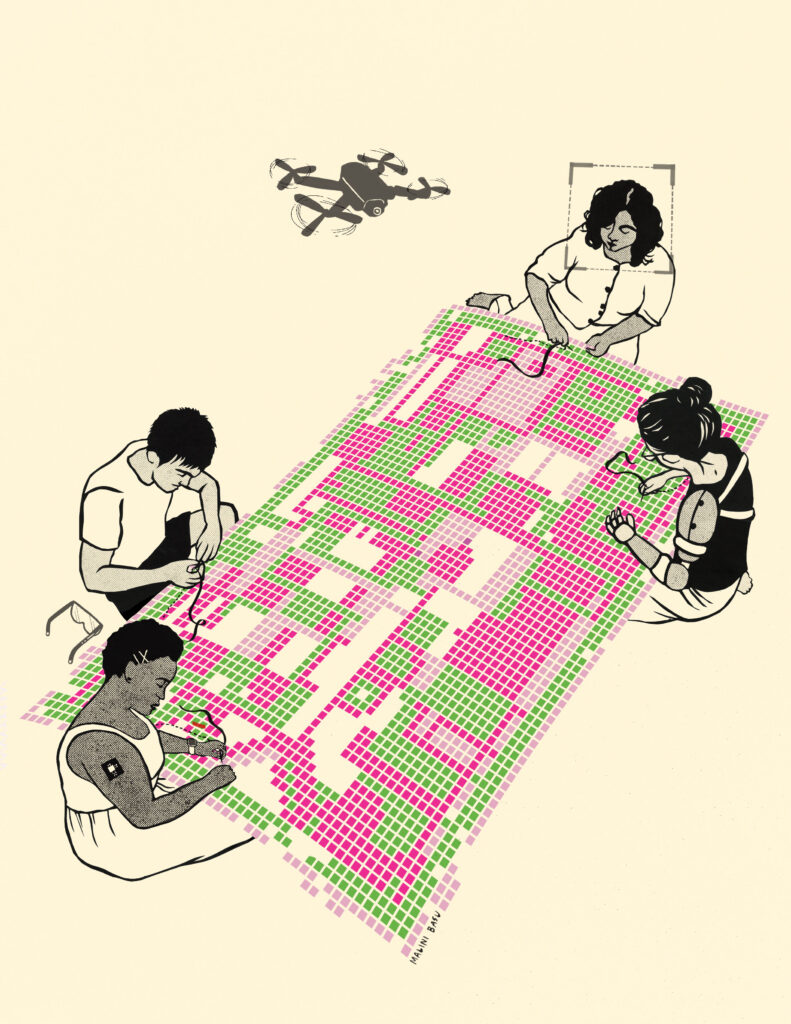International Roundtable 2023
Contact
Kofi Annan Institute for Global Citizenship (IGC)Markim Hall, Third Floor 651-696-6655
651-696-6750 (fax)
igc@macalester.edu
facebook twitter
30th Annual International Roundtable
Humanoids? Exploring the future of human freedom, ethics, knowledge, and relationships

“Machine intelligence is the last invention that humanity will ever need to make”
Nick Bostrom (TED talk)
“A computer would deserve to be called intelligent if it could deceive a human into believing that it was human.”
Alan Turing
“No 9000 computer has ever made a mistake or distorted information. We are all, by practical definition of the words, foolproof and incapable of error.”
Hall 9000, 2001: A Space Odyssey
Humanoid (adj): having human form or characteristics (Merriam-Webster dictionary). Initially used to describe various indigenous people by European settlers to name their status as human-like but not quite human, the term humanoid became associated with fossils or characteristics with uniquely human traits. The colonial roots of the term “humanoid” are echoed in our times as advances in technology towards human-like capacities resurface in questions of hierarchy, knowledge, freedom, and human relationships.
Was Alan Turing right to think that once machines could communicate with each other, humanity should expect them to take control? Recent debates about the impact of artificial intelligence programs such as ChatGPT imply that their capabilities are at a turning point. With Sam Altman, OpenAI CEO, testifying before Congress on the dangers of its own company’s chatbot tool, are the dangers of AI programs to override their benefits? Yet, there is not a time when humans have not created or used new technologies to survive, learn, enhance their world, engineer new plants or food supplies, or dominate each other. Recent developments in artificial intelligence are putting humanity on a new threshold and demand the attention of the world, whether they refer to the AI warfare drone armies that already exist or the generation of algorithmic data that propagates information or disinformation. What are the capabilities of AI to foster solutions to food security, reverse climate change effects, solve medical issues, generate machine-human relationships, or create a better world and who will have access to it? What are the dangers of mimicking human processes to the point where we can’t distinguish between the physical world and a virtual one? Who will be the humanoids of the future? How will history be rewritten, remembered or erased? What of humanity’s DNAs?
A 2020 Conversation’s poll revealed that 64.6% of the public surveyed “felt that ‘the public should have a say in how we apply scientific research and technology in society.” Past history has taught us that secretive developments can have toxic consequences on vulnerable and marginalized groups. Open access to information and developments that have an impact on the welfare and future of society require the involvement of citizens and participatory democratic practices.
This theme inspires reflection on the evolving role of virtual worlds, artificial intelligence, and automation with respect to our identities as laborers, artists, and producers of knowledge. In what ways do such advances free, or complicate, an individual’s relationships to human society locally, nationally, or transnationally? Will technological advances solve social issues or replicate them? Who controls the development of such technologies and what are the ethical implications of limiting or promoting their use.
The 2023 International Round table provides a venue for our invited speakers and community members to engage with questions about human beings, and the future of being human. We anticipate that the topics discussed will range from the impact of artificial intelligence on politics, news, and knowledge production to the ways that developments like Meta, the COVID-19 pandemic, and political bifurcation have on our understanding of human connections, power structures, and the influences of colonial histories.
International Roundtable 2023 Theme Selection Panel
Ahoo Najafian, Assistant Professor of Religious Studies
Brian Lozenski, Associate Professor and Chair of Educational Studies
Joëlle Vitiello, Professor & Chair French and Francophone Studies
Khant Wai Yan,‘25 International Studies, Media and Cultural Studies, Critical Theory
MaKaila Knight-Allder, Assistant Director of Residential Life, Staff Development
Meg Thorson, Administrative Coordinator, Kofi Annan Institute for Global Citizenship
Michelle Osiro,’24 International Studies, Biology, Data Science
Mozhdeh Khodarahmi, Associate Library Director – AIRS
Paul Overvoorde, Vice Provost and Associate Dean of the Faculty
Ruth Janisch, Associate Dean, Kofi Annan Institute for Global Citizenship
International Roundtable 2023 Organizing Committee
Hui Wilcox, Dean, Kofi Annan Institute for Global Citizenship
Joëlle Vitiello, Professor & Chair French and Francophone Studies
Khant Wai Yan, International Studies, Media and Cultural Studies, Critical Theory, ’25
Martha Davis, Administrative Coordinator, German and Russian Studies
Michelle Osiro, International Studies, Biology, Data Science, ’24
Mozhdeh Khodarahmi, Associate Library Director – AIRS
Nadia Linoo, Program Coordinator, Kofi Annan Institute for Global Citizenship
Paul Overvoorde, Vice Provost and Associate Dean of the Faculty
Ruth Janisch, Associate Dean, Kofi Annan Institute for Global Citizenship
Plenary Schedule
Wednesday, October 11, 2023 (Weyerhaeuser Boardroom)
- 7 p.m. Film screening of Fixed: The Science/Fiction of Human Enhancement (61 min) by Regan Brashear followed by Q&A
Thursday, October 12, 2023 (Weyerhaeuser Boardroom)
- 11:30 a.m. – 1 p.m. Opening plenary: Professor Renée Cummings
- 4:45 p.m. – 6 p.m. Plenary Two: Dr. Emily Springer
Friday, October 13, 2023 (Weyerhaeuser Boardroom)
- 2:20 p.m. – 4 p.m. Closing Roundtable
Student-led Sessions
Thursday, October 12, 2023 (Weyerhaeuser Boardroom)
- 8:30 a.m.- 9:30 a.m. Student Session #1
Friday, October 13, 2023 (Davis Court, Markim Hall)
- 9:40 a.m.- 10:40 a.m. Student Session #2
- 1:10 p.m.- 2:10 p.m. Student Session #3